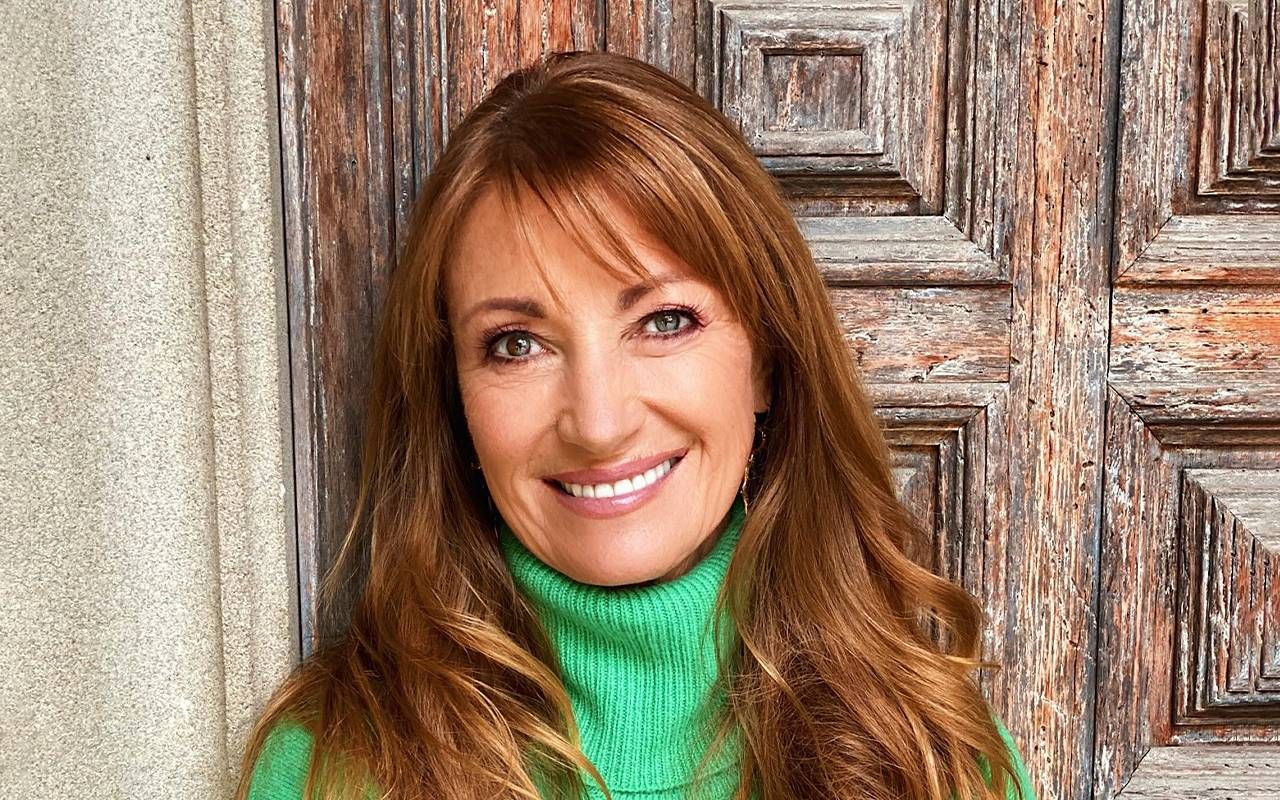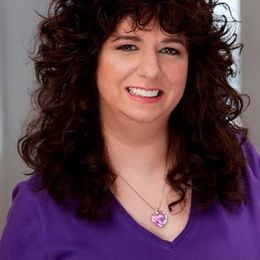Jane Seymour Speaks Out Against 'Unseenism' to Help Women Find Their Voices
Her mission: encouraging women to be part of the conversation, with their health providers and others, and to not be afraid of asking questions
Women who are age 40 and up often feel like they're not being heard. Award-winning actress Jane Seymour is on a mission to change all that.
"In both my television and film roles and in real life, I've always tried to push back against the typical notions of aging and feeling unseen. Being older shouldn't mean you are no longer valuable or relevant," Seymour, 73, says in a statement announcing her new campaign, Speak Up In BE (BE stands for bronchiectasis, a disease that causes permanent widening of the airways which can make it difficult to clear mucus and bacteria), with Insmed Incorporated.

If you haven't heard of "Unseenism," Insmed states it's "enduring gender and age biases in the health care setting [that] can leave some patients feeling overlooked, unheard or ignored."
"I think in real life, it doesn't matter whether you're famous or not. I find that if I have somebody coming to fix something, if they see a man in the room, they won't even talk to me."
In a national survey conducted by Insmed, Unseenism is usually evident with women, as 62% of them said they feel more overlooked as they age, and 58% said they didn't speak up with their physicians because their health concerns were previously ignored.
Seymour, who has starred in several movies including "Somewhere in Time" and "Wedding Crashers" and the long-running television series "Dr. Quinn, Medicine Woman," took the time to speak with Next Avenue about Unseenism and how women can overcome it. What follows is our interview, edited for length and clarity.
Next Avenue: The average woman thinks that someone who is famous doesn't deal with gender/age biases. What are some of the experiences that illustrate the biases you have had against you because of your gender or your age?
Jane Seymour: Well, I mean, the obvious ones are you're too old for this role.
Or the fact that there comes a point usually after 40, where most actresses, even if they've had a career, are just not heard anymore. You're supposedly not relevant. Your story or women of your age are not what people want to watch or want to hear about or want to see. I, however, have been incredibly fortunate in that I have chosen to do projects, whether they're independent movies or the TV series like "Harry Wild," where I am playing somebody that is my age, and I am dealing with the issues that happen to people of that kind of age group.
I think in real life, it doesn't matter whether you're famous or not. I find that if I have somebody coming to fix something, if they see a man in the room, they won't even talk to me. I'll say, "Excuse me. I am the one who phoned you. I actually am the one who owns the house. I'll be paying your bill. So please, can you talk to me?" And then they say, "Well, you won't understand, so I'm going to talk to him." Do you even know who he is? Have you met him?
So one way of dealing with this is humor. I will pick up my phone and say, "While you are explaining it to him, do you mind if I just record it so I will know and remember it? Because clearly, I'm not supposed to be able to remember these things and to save you telling me that, I think I'll just record it."
"When you get to an age where people feel, well, you're not useful for that anymore — you're kind of dismissed."
With Speak Up In BE, we're talking about medical issues in the doctor's office and a lot of different things. We're told we are not supposed to be able to run as fast. We're not supposed to have as much energy. We're not supposed to be as viable, I suppose, in certain things. We're too old for that. And, of course, we're not supposed to remember anything.
I'm a great one for being practical, recording it and just in the nicest possible way, letting them know that I'm the person they should talk to.
Why do you think this is how women are viewed in society? It's changing, but still …
It is changing. But if you think about it biologically, when you are very young and you're a woman, and if you choose to, you could be having children (Seymour has six) and going through that kind of a cycle. When you get to an age where people feel, well, you're not useful for that anymore — you're kind of dismissed.
"I think it's when somebody half listens to you, they don't really hear you, and they dictate what they think is their throwaway —oh, well you are older, this is normal."
I think the problem is someone can try and dismiss you, but you have to not be dismissible. So you have to pivot yourself and just go, okay, so yep, I'm not useful for giving you babies, but actually I'm very useful in terms of an enormous amount of life experience. I actually have time on my hands now and an interest in a lot of different things. I'm not stuck with one career or one thing that I need to do.
And now it's exciting! Now it's your time. So I don't understand. I understand that that's what's happened and what does happen a lot. That's why I think this campaign of Unseenism is incredibly important; to give it a name, give it a face and give it a voice. I think being an advocate for it is really important. Encouraging the average person to have that conversation with their friends, with themselves, with their partners, with their kids, just like, "Hey, I'm not only still here, but I'm actually probably more valuable and useful now than I was before."
Explain in your own words what 'Unseenism' is.
I think Unseenism is when you are maybe too afraid to talk about it because you feel like you're not important to the conversation even when it's about your own health. I think it's when somebody half listens to you, they don't really hear you, and they dictate what they think is their throwaway —oh, well you are older, this is normal. You've just got to accept everything.
I think Unseenism is when you can't self-advocate and when you can't feel good about enough about your own self-worth that you can ask the proper questions, especially in the medical situation here and record the answers. That's what I do. I write down the questions before I go. I do some research beforehand so I know exactly what I'm going to ask the doctor about, and I'm going to absolutely self-advocate. I record because I may not remember it, not because I have dementia or I'm older, but there may be an issue with hearing and processing at the same time that I might miss something that I don't want to miss.
What types of advice are you giving to women?
Do your research, know your questions and listen to your body because no one else hears your body. You can say, "The doctor missed that." But did you tell the doctor that that's what you're actually feeling? Write down "These times on those days, this is what I felt."
"Do your research, know your questions and listen to your body because no one else hears your body."
Ask your doctor, "Please tell me what do you think. Because you've got the training, you've got the expertise."
There are lots of diseases like bronchiectasis where they can easily be brushed off as, "You have chronic cold," or "We've checked your lungs." You need to be able to ask the questions and say, "Can we dig deeper? Because what you're giving me that's supposed to be making me feel better isn't."
We're asking people to really listen to their bodies, make sure they know what the questions are, and the information they can give. If you're not going to remember it and you get nervous in the doctor's room, as we all do, write it down. And if you're not going to hear or understand or remember what they told you to do, record it or have an advocate with you.
What about women who have trouble self advocating? What would you say to them so that they would speak up?
Get to the point saying, "These are my issues. These are my questions, and if you're going to give me some answers, is it okay with you if I either have someone else in the room listening with me or I take notes or I can use my recorder just so I won't forget it?"
I think you will be respected for doing that because you're not wasting time, and they're not going to have to tell you the same thing three times.
Sometimes the doctor may tell you things you don't want to hear. So take someone with you if you feel scared. Have somebody else come with you who can ask the questions for you that you may be afraid to ask.
Anything else to say about age?
I honestly think that age is obviously linear, but different for everyone. I think if you have a young spirit, if you find joy, if you can embrace body, mind and spirit — you have purpose. And for me, being creative is really important. Just find what it is that makes you tick and live your best life.


